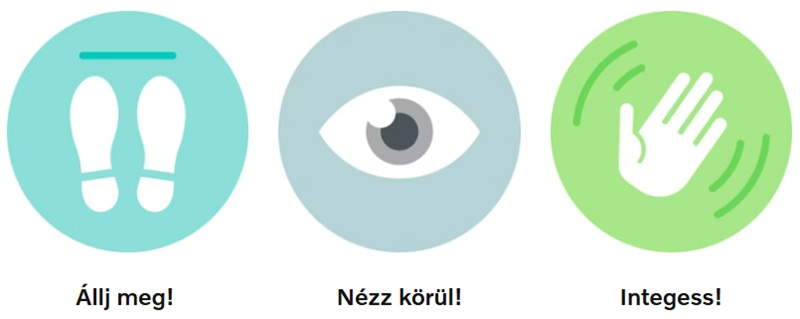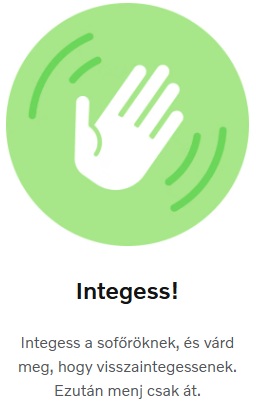
Shh
Shh
Remember this?:

Let's imagine all languages began with onomatopoeia. Commands have, among other uses, three functions: (1) to control (2) to care for and (3) to warn. They would do well to invite the listener's participation. So appropriately the consonants are changed to become softer, more swallowing and natural, like wind, water, soft thumps for attention. Thus we have born the s, sh, zs, gy, j, y, and d sounds.
Ok, we have no basis for this other than our own imagination, but isn't it comforting to imagine ourselves a baby coaxed into silence, our mother sensing a predator or enemy near. And imagine similar encouraging sounds calming and directing us to grow and explore. Or to warn strangers, escalating the sounds from softness to alarm, a hissed "ss" or a determined "dd." Can we imagine sounds that express mood and communicate desire, that demand attention and refuse argument?
Let's take a look at some of the words on our favorite "stop, look-aroud, wave" page:
https://www.volvotrucks.hu/hu-hu/about-us/safety/stop-look-wave.html
mennél: (you) would go (not a command)
átmennél: (you) would go across (not a command)
menj át!: Go across! [command]
Miellőtt átmennél az úton, állj meg.
Before you go across the road, stop.

nézel: you look (not a command)
körülnézel: you look around (not a command)
nézz körül!: Look around! [command]
veszel: you take (not a command)
felveszel: you pick up (not a command)
Vegyél fel!: Pick up! [command]
Nézz körül mindkét irányba, és vegyél fel szemkontaktust a közelben lévő soförökkel.
Look around in both directions, and pick up eye contact with the drivers existing in the vicinity.

várod: you wait [for something that has already been named] (not a command)
megvárod: you wait in place [for something that has already been named] (not a command)
várd meg!: Wait in place! [for something that has already been named] [command]
integetnek: they wave (not a command)
visszaintegetnek: they wave back (not a command)
Integessenek vissza: They are to wave back [command]
Integetsz: you wave (not a command)
Integess: wave! [command]
Integess a soföröknek, és várd meg, hogy visszaintegessenek. Ezután menj csak át.
Wave to the drivers, and wait in place, for them to wave back. After this go immediately across.
We hear a lot about how word order in Hungarian is about emphasis, about new information.
Well, yes and no.
Of course, we can always emphasize something by saying it louder. Indeed, the word for emphasis in Hungarian is "hangsúly" which means "sound weight."
But what about saying something before we get cut off? Imagine we only have a short amount of time to say something vitally important. Maybe an arrow is about to strike us, or poison is about to paralyze our lungs.
So the words that can not be guessed at we must say first, before the ones we can guess at. It does not good to plan to say our emphasized word louder, if it takes so long to get to that nobody is around anymore, or we ourselves get interrupted.
In a same logic, the address for a house starts with the country, then city, then street, then house, then floor, then door.
So that if we run out of room on the paper, we can at least find the right floor and go knocking on all the doors.
Just as the dates start with the year, then month, then day.
So that we will approximate the right time, but not necessarily to the microsecond.
And names start with the family's name, then the individual name comes after.
If we structure our sentence to be: "The treasure is to the left," but we get cut off before we can finish ("The treasure is to the --"), our listener is lost.
But if we structure our sentence to be: "To the left is the treasure," and we are cut off before we can finish ("To the left is the --"), our listener might not know what is to the left, but at least he knows that going to the left is important, and will go find out.
All this perhaps is an oversimplification of a concept.
But it is a nice place to start.
One of the issues is that we can't just throw all the wimpy low-impact words to the end. There are conventions. Adectives go before nouns, articles go before those, possessed objects come after the possessor, what-have-you.
So "put the important stuff at the front" turns into "put the important word in front of the verb."
After all, every sentence has a verb, doesn't it?
Well, sometimes sentences don't, in some situations where the verb is "van" or "vannak."
Though perhaps there is more to discover in such sentences.
Also, some words are always in focus, and some words are never in focus.
They just need to be memorized.
Some coverbs split off the verb and move in back of it when another word comes in focus, some other words, such as helping verbs, interject themself between the coverb and the verb, with no running to the back of the line with the coverb, though with certain stressed elements the running to the back can occur with these helping verbs too.
See, so to memorize an infinite book of rules would only get us so far....
It is nicer to have some balance - here is something endearing to hear - "Kész a palacsinta!"
And that is the word order for that type of event.
And it means something to us. It means our tummies are going to be full.
And so we copy it when it comes to something like that.
And a different time, when someone says fondly and sadly when we move away across the ocean, perhaps never to meet again: "Soha nem felejtelek el." Perhaps that is something we keep in our hearts and think of every so often. And so we use that word order when we have a similar need.
In English "lucky he is!" means the same as "he is lucky!"
In Hungarian, szerencés ő does not mean the same as ő szerencés.
Szerencés ő: Lucky him. (Lucky is an adjective describing "him." "Lucky he" theoretically would be correct, but as mentioned before, English long ago has forgotten the "correct" usage of subject and object pronouns.)
Ő szerencés!: He is lucky! (Lucky is a noun. Ok, technically a "predicate adjective" or a "subject complement." But I am going to call it a noun because it acts like a noun. The verb "van" ("is") exists but is invisible.)
If we want to get technical about it, we would say "the nouns are used attributively and the adjectives are used predicatively."
Let's look at an example sentence:
A rendőr egyenruhák kékek, a katonaiak pedig zöldek.
The police uniforms are blue [ones], the military [ones] however are green [ones].
Rather than using long terms like "predicate adjective" and "attributive noun" I am going to (as a thought experiment, jeesh, don't get so bent out of shape about sacred grammar terms) call the nouns adjectives when they act like adjectives and call the adjectives nouns when they act like nouns.
Thus, adjectives that turn into nouns take noun endings (plural, etc).
And nouns that turn into adjectives must preceed the noun they describe and do not take any endings.
Ok, humor me a little here... using this way of viewing things:
Now that we're having fun flaunting all proper grammatical disciplines, let's translate a Hungarian sentence into English, but Hungarian style:
Az a baj, hogy későn szólsz. Már odaadtam a koncertjegyeket másnak.
That is the problem, that late call you. Already overhanded I the concert tickets another to.
My God, it's perfectly understandable, even though we "don't speak like that" in English.
Just like we understand perfectly Yoda speaking in Star Wars.
And we can memorize the Hungarian. It's not hard.

Just something to think about, that's all.